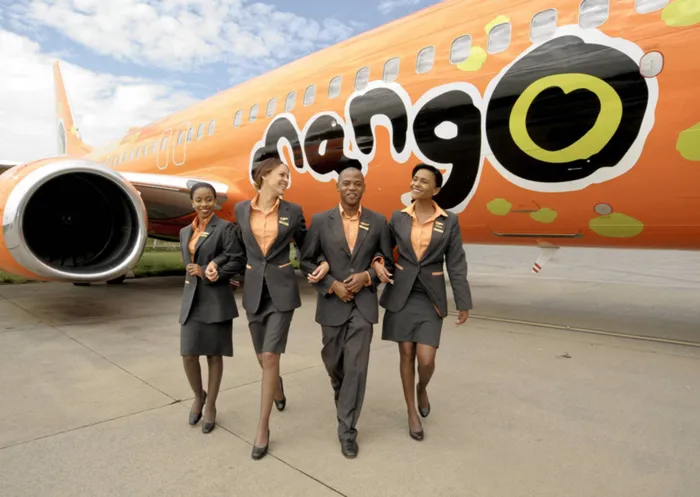Mango airline's business rescue plan faces setback as court ruling is challenged

Mango’s business rescue practitioner is challenging the Gauteng High Court, Johannesburg, ruling declaring the plan to save the state-owned low-cost airline unimplementable.
Image: File
The business rescue practitioner (BRP) of grounded low-cost airline Mango is challenging the Gauteng High Court, Johannesburg, judgment declaring the plan to save the state-owned company unimplementable.
BRP Sipho Sono has filed an application for leave to appeal Judge Denise Fisher’s ruling handed down last month.
Judge Fisher found that the plan, stripped of its complexity, amounts to nothing more than the confiscation of creditors’ claims to be transferred by Sono to an investor who pays no value for them or the shares.
She ordered: “The compulsory cession contained in clause 6.2.6 of the business rescue plan is declared to be invalid and of no force and effect. It is declared that the business rescue plan cannot be implemented”.
Judge Fisher said Sono’s opposition to Aviation Co-ordination Services’ (ACS’s) application was unmeritorious.
ACS, which provided security-related services such as baggage and cargo screening services, baggage reconciliation and check-in services, hauled Mango and Sono to court over the plan to save the subsidiary of South African Airways.
The company is one of the creditors owed about R2.91 billion by Mango before it was placed under business rescue in July 2021 and is owed over R23.3 million.
ACS complained that its estimated settlement would translate roughly to R44,300 per R1m, a return which it described as negligible, if not nominal.
Sono has indicated that there are sufficient funds to pay a dividend of more than the 4.43 cents to each rand owed, as estimated in the business rescue plan.
In the challenge to Judge Fisher’s judgment, Sono stated that the court’s findings that a business rescue plan cannot provide for an involuntary cession against non-acceding creditors was made as a principle that is far-reaching and has implications that extend beyond the present dispute and constitute a compelling reason why leave to appeal should be granted.
“The decision involves a question of law which is important, as the decision is of general application, affecting all business rescue plans that entail an involuntary cession, including against non-acceding creditors, which is a common feature of business rescue plans,” he explained.
Mango and Sono want to be granted leave to appeal to the Supreme Court of Appeal and believe there are reasonable prospects of success.
Sono defended the appeal, asserting his right to pursue litigation if he reasonably believes that a favourable outcome for Mango will benefit all affected parties.
“The BRP will continue to act and take such steps as he reasonably believes are in the best interests of all affected persons, notwithstanding the various threats made by ACS and its legal representatives, which are regrettable, inflammatory, and achieve no legitimate purpose,” he added.
According to Sono, ACS’s intentions remain unclear but on the face of it, it would seem that the company prefers a situation where the potential investor withdraws and Mango is wound up.
“It is not clear why such an outcome would be favourable to ACS, who during the height of Mango’s operations generated approximately R70m per annum in revenue,” he added.
loyiso.sidimba@inl.co.za